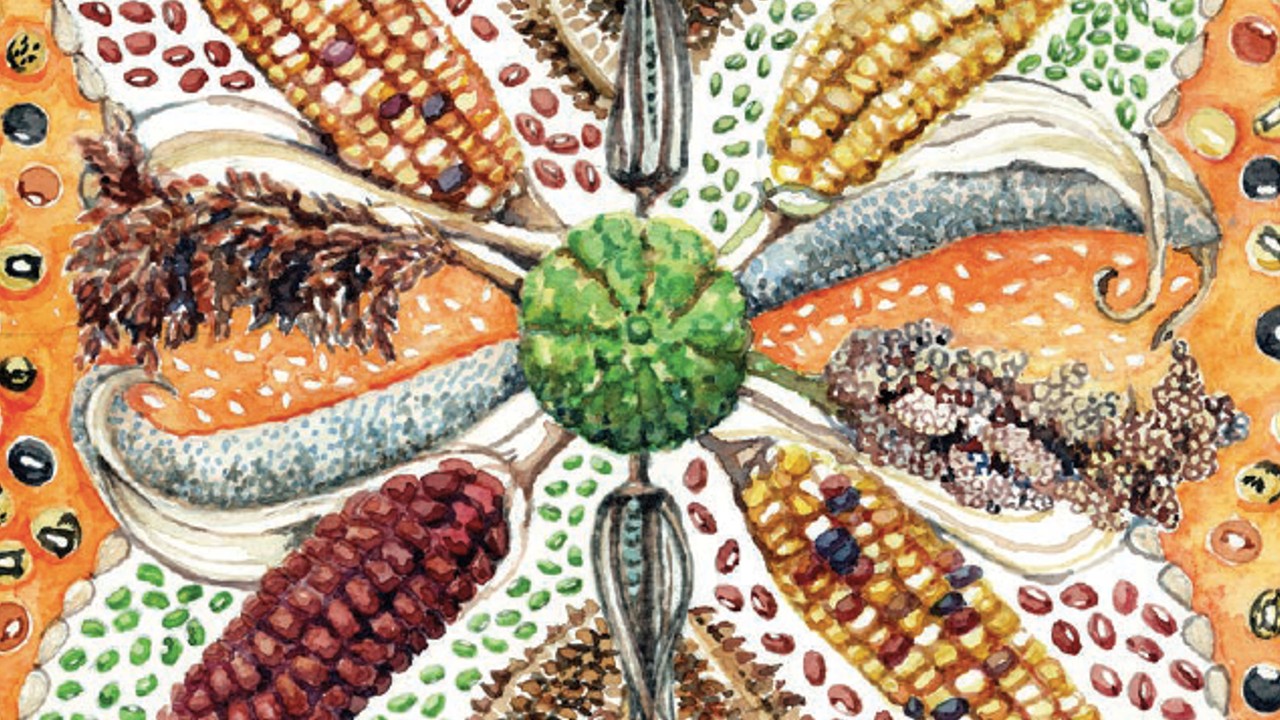Latest Seed Laws & Policies Resources
5 May 2017
Impacts of Seed Laws on farmer managed seed systems
Seed laws often overlook the vital role of farmer-managed seed systems (FMSS), sidelining smallholder farmers and their locally adapted varieties, which don’t meet formal criteria. Learn more about these and other topics in the factsheets produced by the ACB for smallholder farmers in Africa. The materials are available in several languages and cover a range […]
READ5 May 2017
What are the DUS criteria?
DUS stands for Distinct, Uniform and Stable. The DUS criteria aims to supply industrial-scale commercial farming systems while smallholder farmers plant seed that is not distinct, uniform or stable. This third factsheet gives more information on this system and the potential impact on smallholder farmers. Learn more about these and other topics in the factsheets produced by the […]
READ5 May 2017
What is quality declared seed?
The quality declared seed (QDS) system is part of the formal seed system and also controls seed quality and purity. The QDS has several benefits, including the system being a good employment opportunity for farmers who produce improved seed. It does, however have drawbacks such as the limited access to basic seed for seed multiplication. […]
READ5 May 2017
What is a seed law?
Seed laws were developed by governments and industry and are used as instruments to replace and undermine the farmer-managed seed system. Learn more about these and other topics in the factsheets produced by the ACB for smallholder farmers in Africa. The materials are available in several languages and cover a range of topics dealing with […]
READ5 May 2017
Factsheets: Plant Breeders’ Rights
In the eighth factsheet in the series you can read about plant breeders’ rights, farmers’ right and UPOV 1991. English | French | Portuguese | Shona | Swahili For the ninth factsheet click here.
READ5 May 2017
Factsheets: Seed from the commercial sector
This fourth factsheet in the series about Farmer Seed Systems looks at seeds from the commercial sector and its place in the seed system. English | French | Portuguese | Shona | Swahili To read the next factsheet, click here.
READ17 November 2016
Comments on the revised draft regulations (draft 3) for implementing the Arusha Protocol for the Protection of New Varieties of Plants
Further comments on the revised regulations (draft 3) for the implementation of ARIPO’s Arusha Protocol for the Protection of New Varieties of Plants, that will be submitted for adoption in December 2016. This paper focuses on some of the most problematic aspects that needs to be rectified by ARIPO Member States as these perpetuate impingement […]
READ28 July 2016
ACB comments on revised Draft Regulations (Draft 2) for Implementing the Arusha Protocol for the Protection of New Varieties of Plants
The revised regulations for the implementation of the African Regional Intellectual Property Organisation’s (ARIPO’s) Arusha Protocol for the Protection of New Varieties of Plants continues to perpetuate the impingement of national sovereignty, fails to safeguard farmers’ rights and farmer seed systems and to provide safeguards against biopiracy. These comments, submitted to ARIPO, raise concerns and […]
READ2 June 2016
Integration of small-scale farmers into formal seed production in South Africa
The scoping report looks at key policies, legislation and programmes in SA with an emphasis on seed laws and considers the implications for small- scale farmer involvement in this sector and outlines a few projects on community seed production, indigenous crops and black- owned private sector seed production efforts.
READ4 May 2016
Changing Seed and Plant Variety Protection Laws in Tanzania – Implications for Farmer-Managed Seed Systems and Smallholder Farmers
Seed legislation is under review in Tanzania with a view to changing this in order to further expand the role of the private sector in the commercial seed sector. This law reform is mainly targeted at the seed marketing laws (Seed Act of 2003 and its regulations of 2007) and revision of its Plant Breeder’s […]
READ2 July 2014
Alliance for Food Sovereignty in Africa (AFSA) submission to ARIPO, AU and UNECA for urgent intervention in draft ARIPO Plant Variety Protection Protocol, in order to protect farmers’ rights and the right to food
This submission contains several grounds upon which AFSA is seeking urgent interventions by ARIPO, the AU and the UNECA to urgently revise the draft ARIPO PVP Protocol to protect farmers rights and the right to food. Read more.
READ16 June 2014
Slavishly following UPOV 1991: A critique of Mozambique’s PVP law
In this report, the ACB provides a critique of the Mozambique PVP law and concludes that the government of Mozambique has turned a blind eye to its small-scale farmers and their seed and farming systems. The provisions dealing with the exclusive rights granted to plant breeders and the exceptions to those rights render the centuries-old […]
READ











